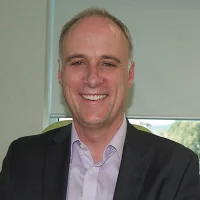Articles / 70% of GPs say patient behaviour is deteriorating, social media and consumer culture implicated, says expert

Social media and consumerism are major factors, one expert says.
“Patients have become increasingly more demanding, anxious and entitled, expecting to be seen at their convenience and often with long lists of problems and unrealistic expectations about the time frame involved to deal with these issues appropriately,” one GP told Healthed.
Previous surveys have revealed that rising patient demands are a large contributor to deteriorating working conditions in general practice. But why have patients become more demanding, and what does that behaviour look like? Healthed conducted a survey of around 400 GPs on 27 September to find out.

We also asked GPs whether patient expectations, unreasonable demands, and rudeness or abuse had increased during the pandemic.
Over half of GPs (59%) reported an increase in unreasonable demands from patients, and almost half (41%) reported an increase in episodes of rudeness or abuse from patients.

One GP reported “increasing and unrealistic demands from patients, especially phone requests for absolutely everything and ‘now’.”
“Despite a wonderful community, there are more abusive patients, which affects GPs, staff and the waiting room patients. I’m aware of a patient invading a colleague’s room today without permission, and abusing reception staff,” said another GP.
To find out more about what was driving this increase in antisocial behaviour from patients, we asked GPs to select likely causes from a list. GPs could select multiple options.

Two thirds of GPs surveyed (67%) said that patient expectations had changed due to pandemic pressures but also due to the rise of instant gratification consumer culture.
Dr Rachael Sharman, a senior lecturer in psychology at the University of the Sunshine Coast, says that GPs are not unique in experiencing increased demands from members of the general public.
This is happening in all service sectors, and seems to be due to a “generational shift” of increased anxiety and decreased social skills, she says. Heightened anxiety combined with fewer social graces often results in “flame-outs”, rude responses or other negative behaviours, she says.
Dr Sharman says that one reason for our increased anxiety and decreased social skills could be time spent on social media and behind screens, and the pandemic has exacerbated this trend.
“Social media is not very social at all,” she says. “In fact, I usually call it anti-social media… it doesn’t engender good social skill development, or communication skills, or any of those things.”
In a general practice setting this can have a big impact. Patients with heightened anxiety often expect their GP to “wave a magic wand” when this may not be realistic, says Dr Sharman.
“There are a lot of chronic complex health conditions that require ongoing management and chipping away and very, very small gains over a long period of time. And people don’t have the patience and they don’t have the concentration levels to be able to manage that.”
Online information can contribute to health anxiety as well. Over half of GPs identified ‘Dr Google’ and the increased use of online health information as a contributor to the change in patient behaviours. Dr Sharman highlighted the “inflammatory” nature of online advice, saying that it is often designed to provoke an emotional reaction, again resulting in patients with heightened anxiety in the GP clinic.
Dr Sharman says it’s not easy to come up with solutions for this trend. One suggestion is for GPs to be strict on their time allocation. Between staff shortages and increased patient expectations, GPs can get “sucked into a vortex of health anxiety”, she says.
Dr Sharman says GPs should focus on their core business as a GP and remind themselves not to get distracted from that too often. “It’s a good time to remind people that there’s a very fine line between supporting someone and enabling someone,” she says.
Dr Aajuli Shukla, a GP based in Sydney, says GPs can educate patients on boundaries and set realistic expectations for consults.
“There is very little discussion or teaching in medical school regarding setting appropriate boundaries with patients and guiding their expectations,” she says.
“Some of this education is touched on during formal general practice training, but it is a notoriously difficult concept to put into practice.
“One of the ways we can manage our busy workflows is to set expectations early with patients regarding managing one issue during one consult and if needed booking a longer consult to manage two issues.
“I often ask patients who come in with a list of concerns to give me a short overview of their list. I then discuss the one issue that seems most pressing clinically and work with them to set up a time to manage the rest.
“In the initial period, most of my patients tried to ask me to still, ‘Just do a referral for a new problem’ but I would work on being firm and explaining my reasons for sticking to this timeline.
“I would explain that by doing this I am able to stay on time for them and the other patients in the waiting room. Over time this has translated into most of my patients not questioning the one issue for one consult rule that I have.”
Next week, we will explore practical solutions and strategies to address deteriorating patient behaviour.


Alcohol Addiction Assessment and Advice

Premature Ovarian Insufficiency – The New Guidelines

Paediatric Allergic Rhinitis & Immunotherapy

Inhaler Devices

Increase
No change
Decrease
Listen to expert interviews.
Click to open in a new tab
Browse the latest articles from Healthed.
Once you confirm you’ve read this article you can complete a Patient Case Review to earn 0.5 hours CPD in the Reviewing Performance (RP) category.
Select ‘Confirm & learn‘ when you have read this article in its entirety and you will be taken to begin your Patient Case Review.
Webcast TONIGHT
POTS – What You Need to Know